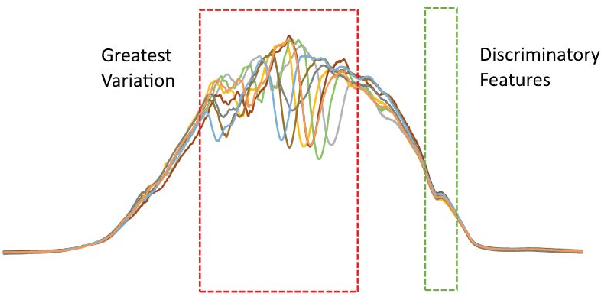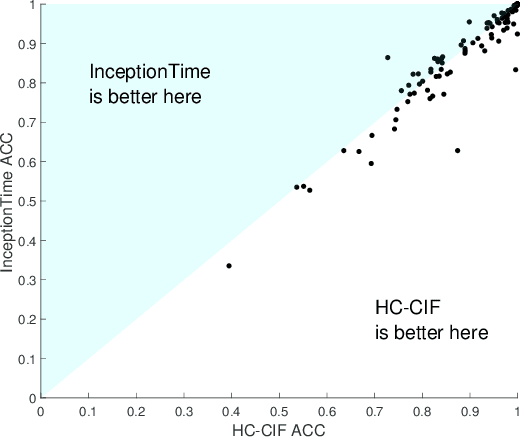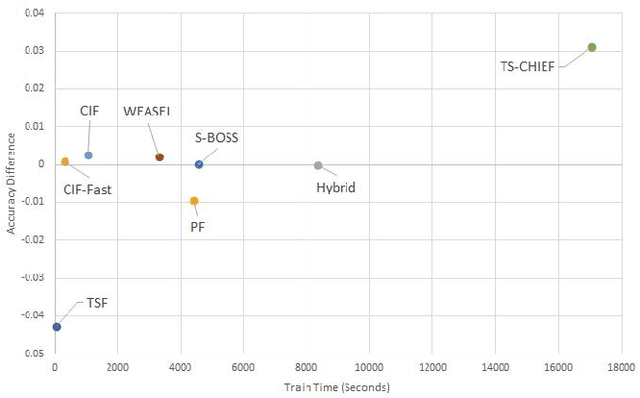The Canonical Interval Forest (CIF) Classifier for Time Series Classification
Paper and Code
Aug 20, 2020



Time series classification (TSC) is home to a number of algorithm groups that utilise different kinds of discriminatory patterns. One of these groups describes classifiers that predict using phase dependant intervals. The time series forest (TSF) classifier is one of the most well known interval methods, and has demonstrated strong performance as well as relative speed in training and predictions. However, recent advances in other approaches have left TSF behind. TSF originally summarises intervals using three simple summary statistics. The `catch22' feature set of 22 time series features was recently proposed to aid time series analysis through a concise set of diverse and informative descriptive characteristics. We propose combining TSF and catch22 to form a new classifier, the Canonical Interval Forest (CIF). We outline additional enhancements to the training procedure, and extend the classifier to include multivariate classification capabilities. We demonstrate a large and significant improvement in accuracy over both TSF and catch22, and show it to be on par with top performers from other algorithmic classes. By upgrading the interval-based component from TSF to CIF, we also demonstrate a significant improvement in the hierarchical vote collective of transformation-based ensembles (HIVE-COTE) that combines different time series representations. HIVE-COTE using CIF is significantly more accurate on the UCR archive than any other classifier we are aware of and represents a new state of the art for TSC.
 Add to Chrome
Add to Chrome Add to Firefox
Add to Firefox Add to Edge
Add to Edge